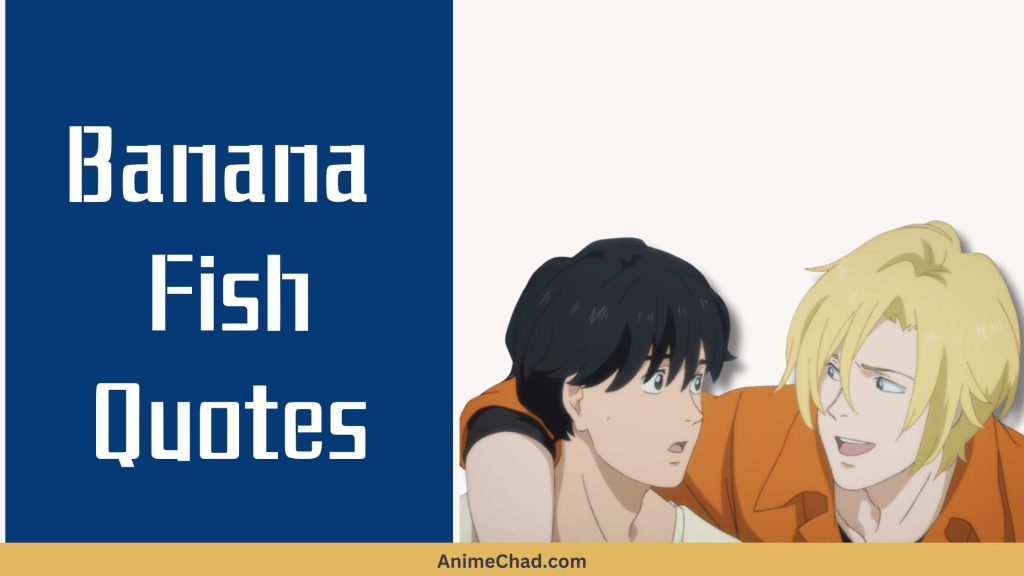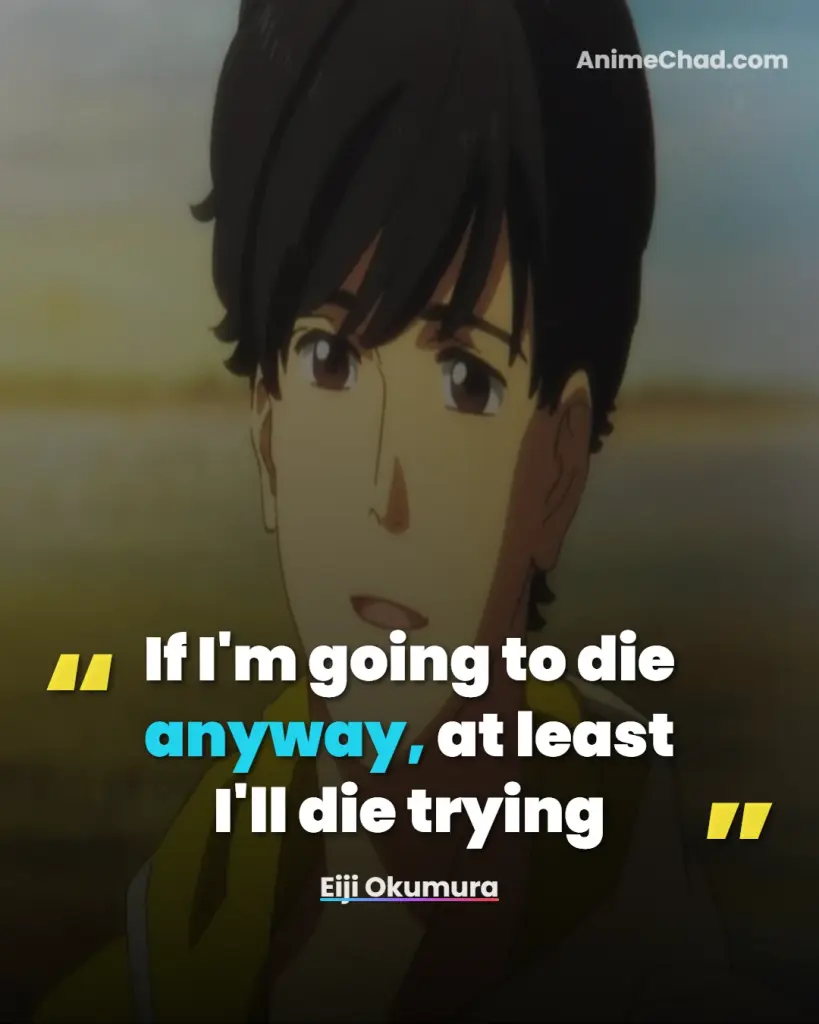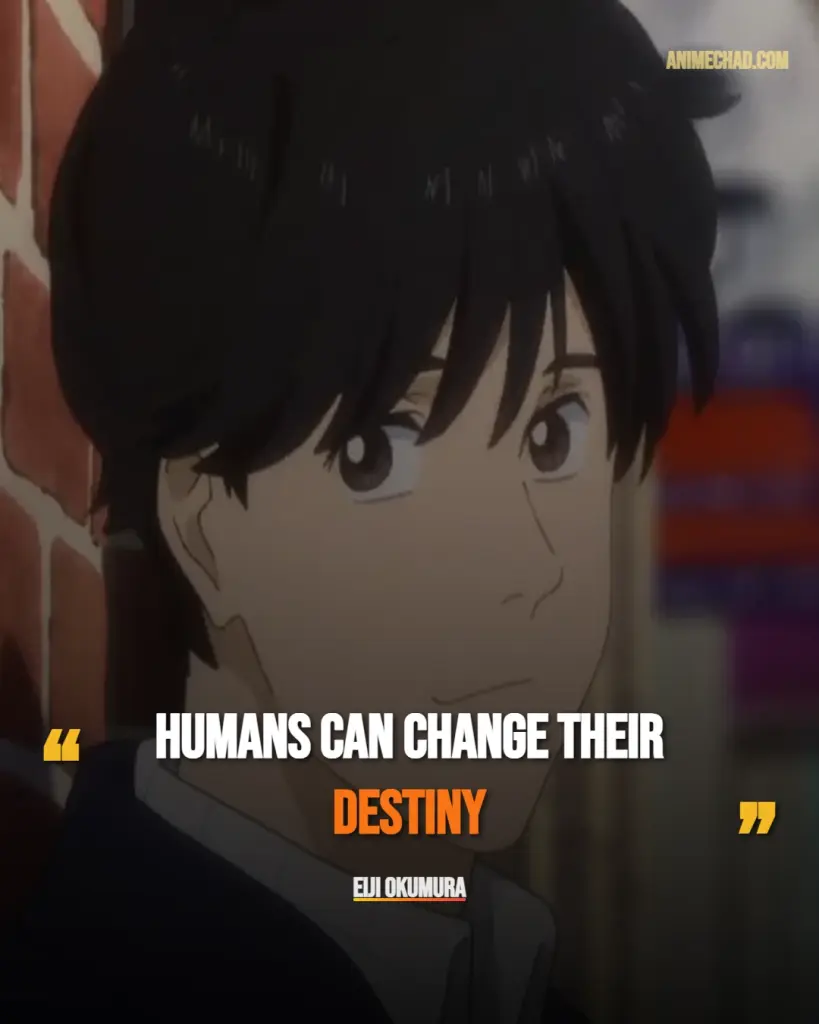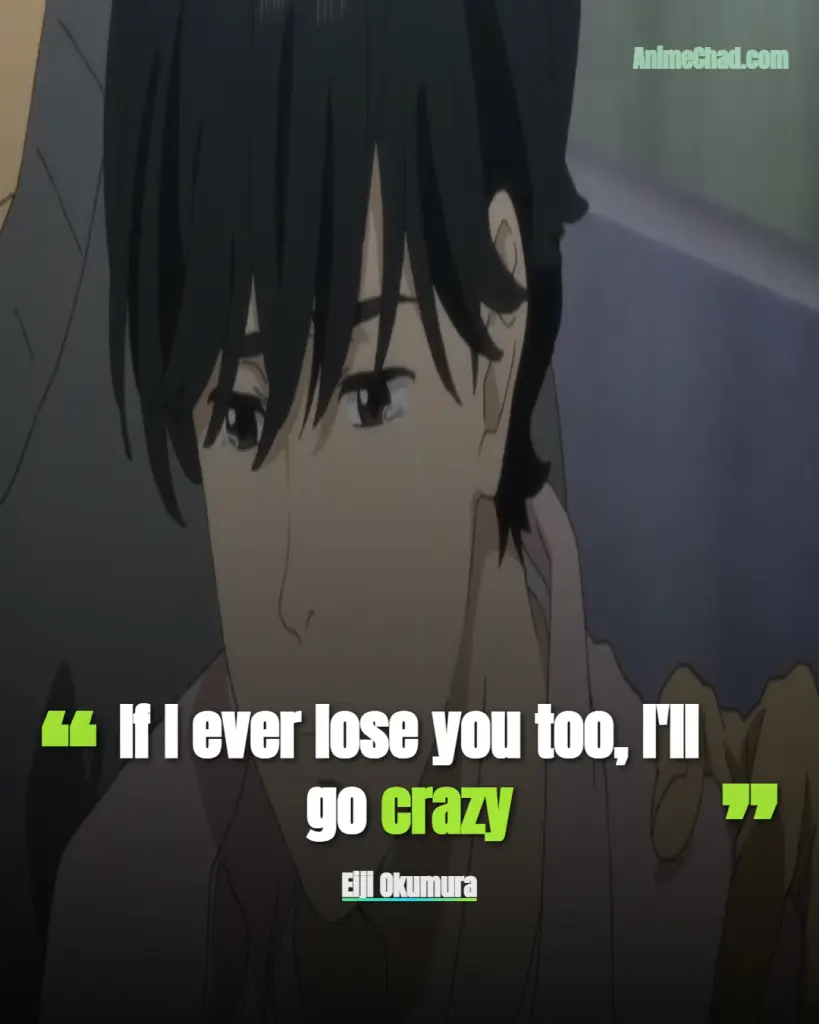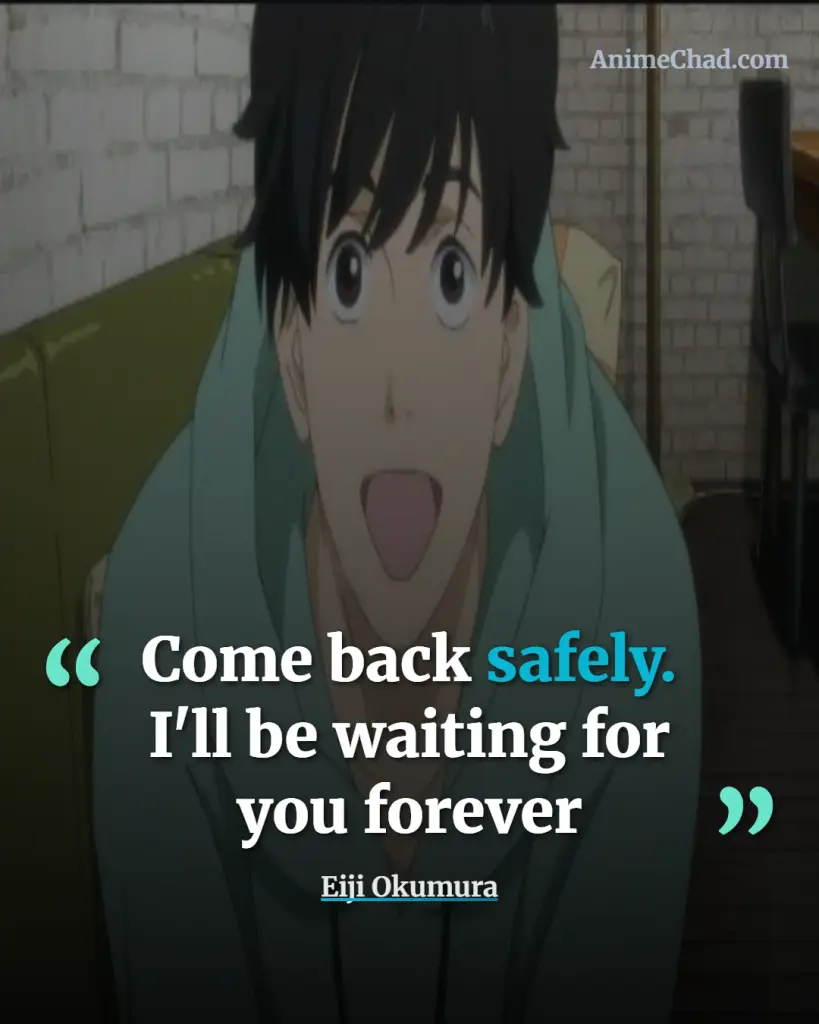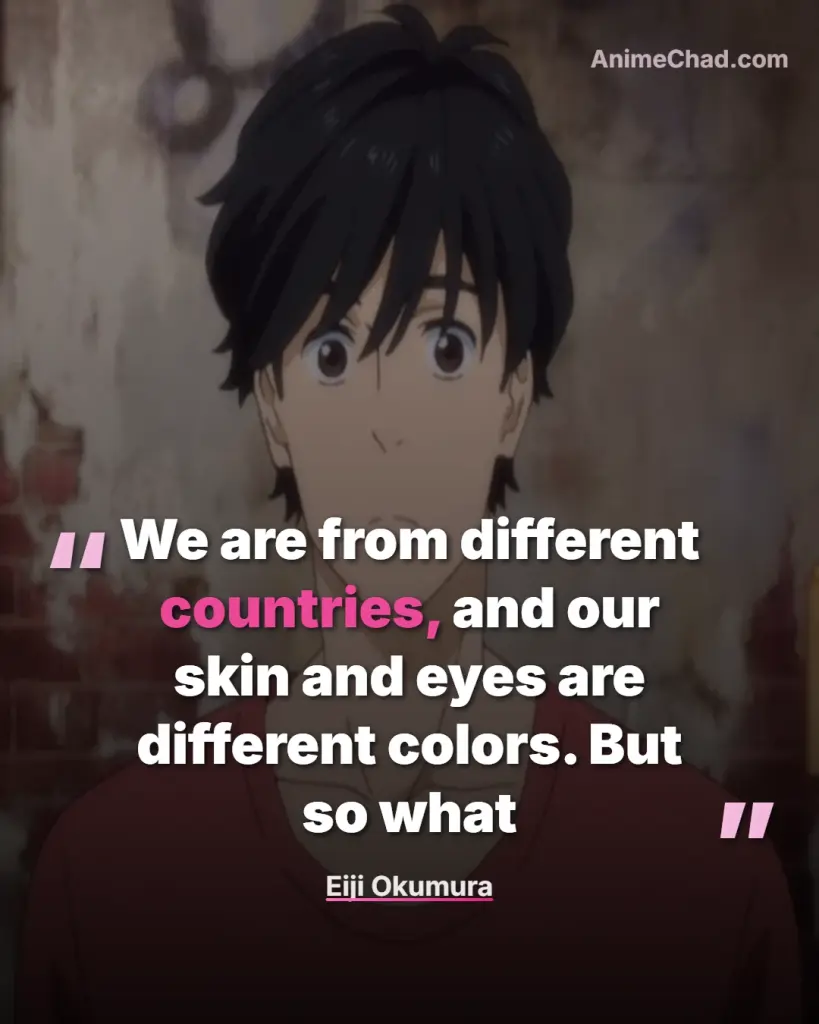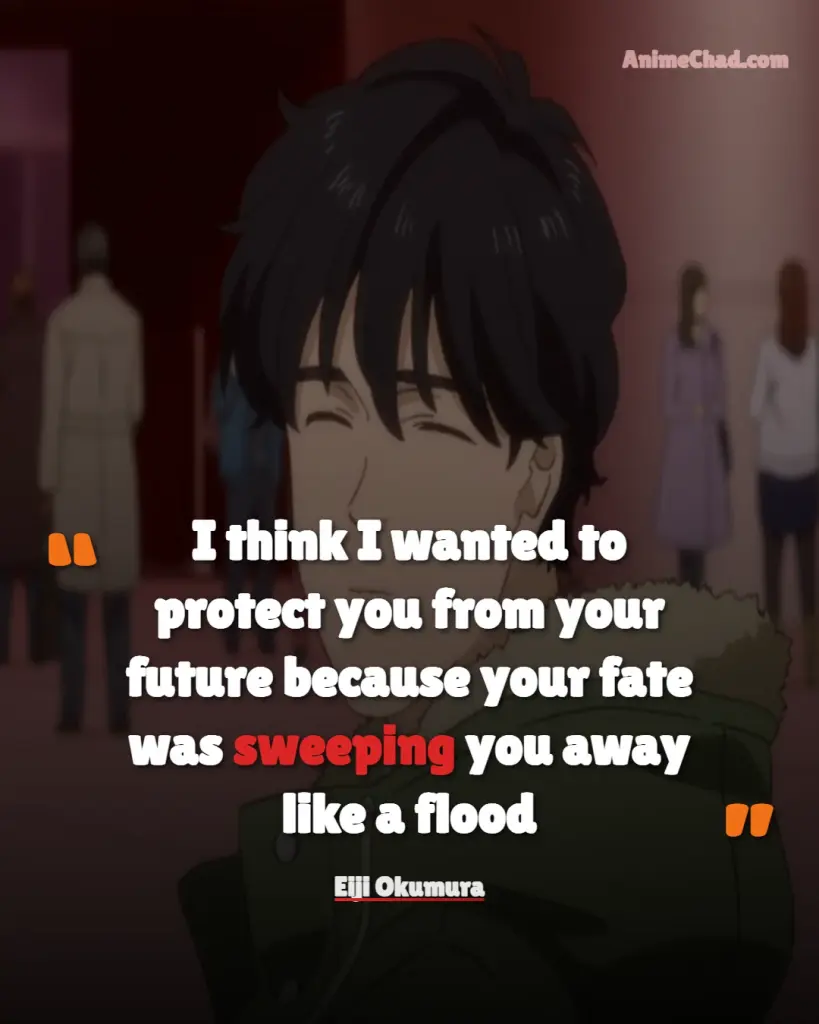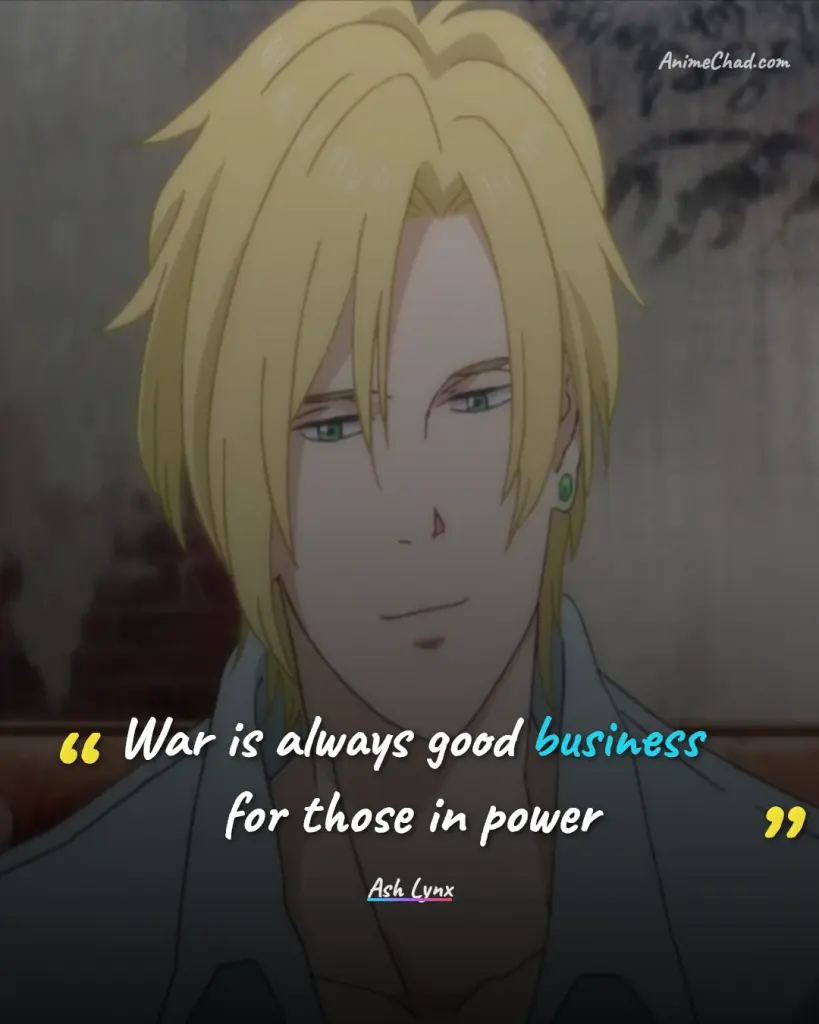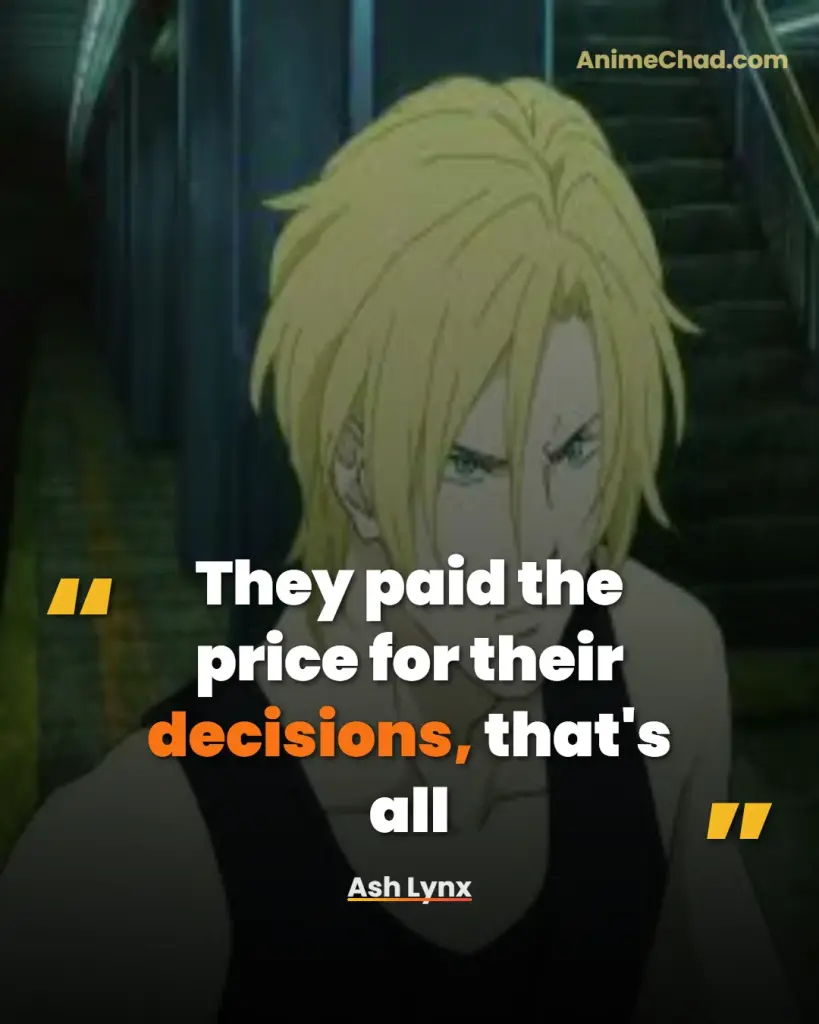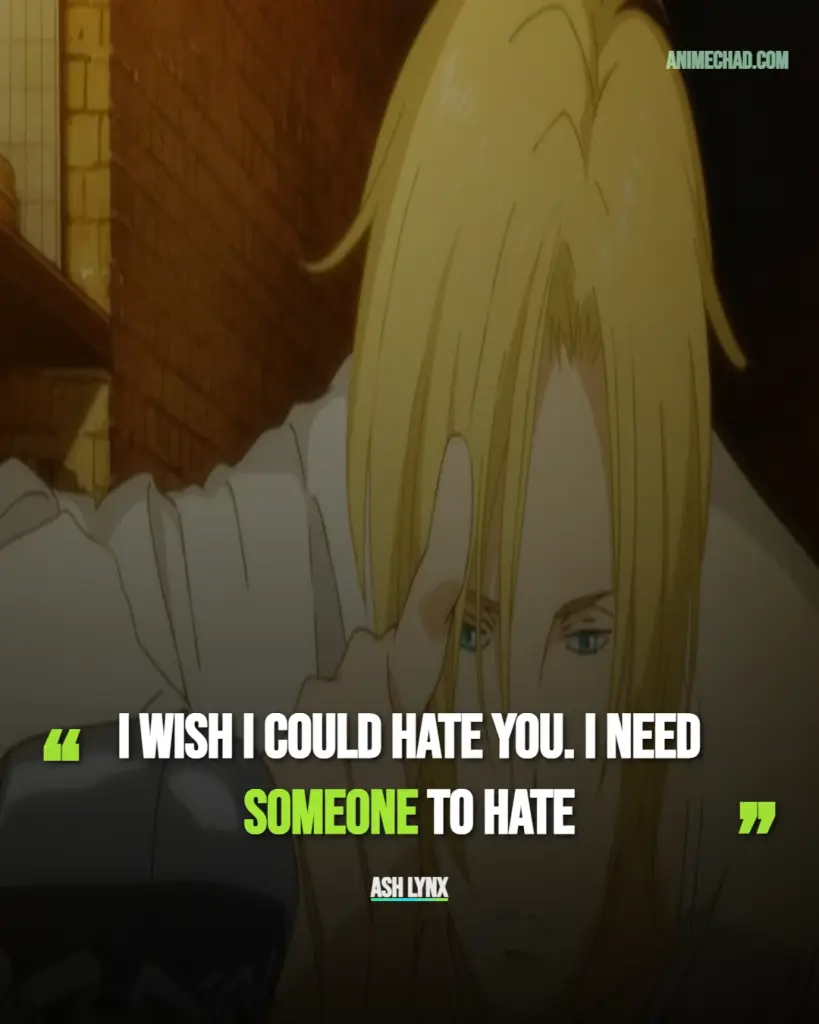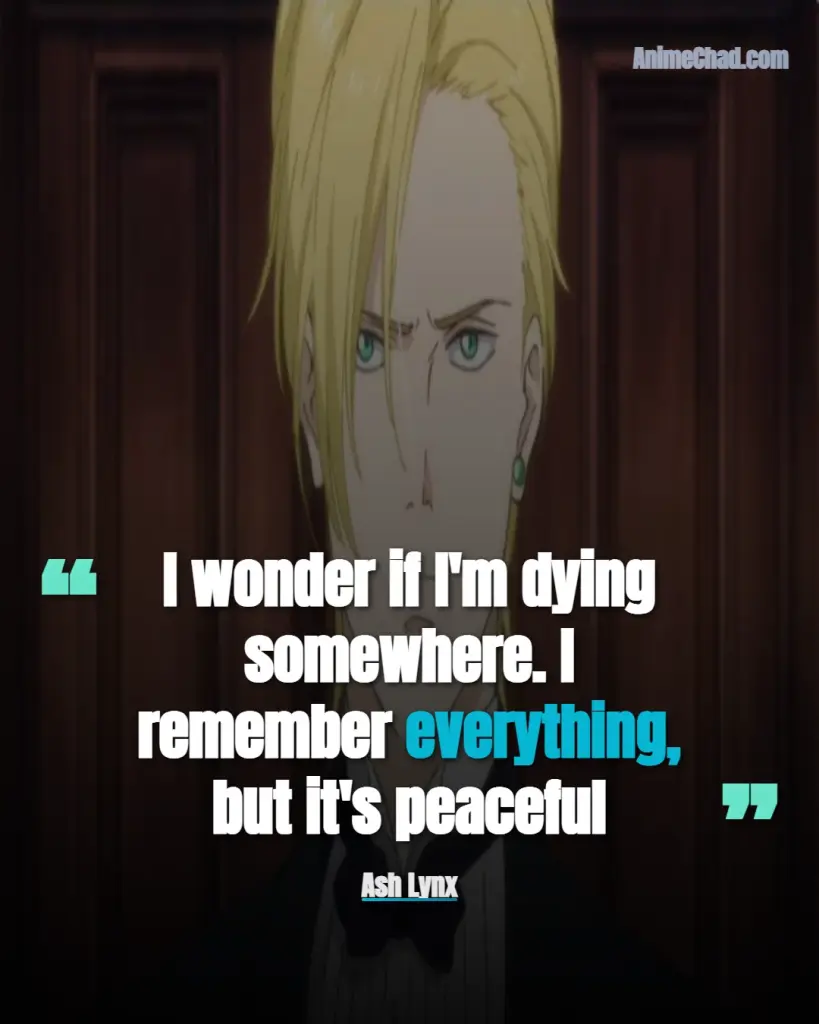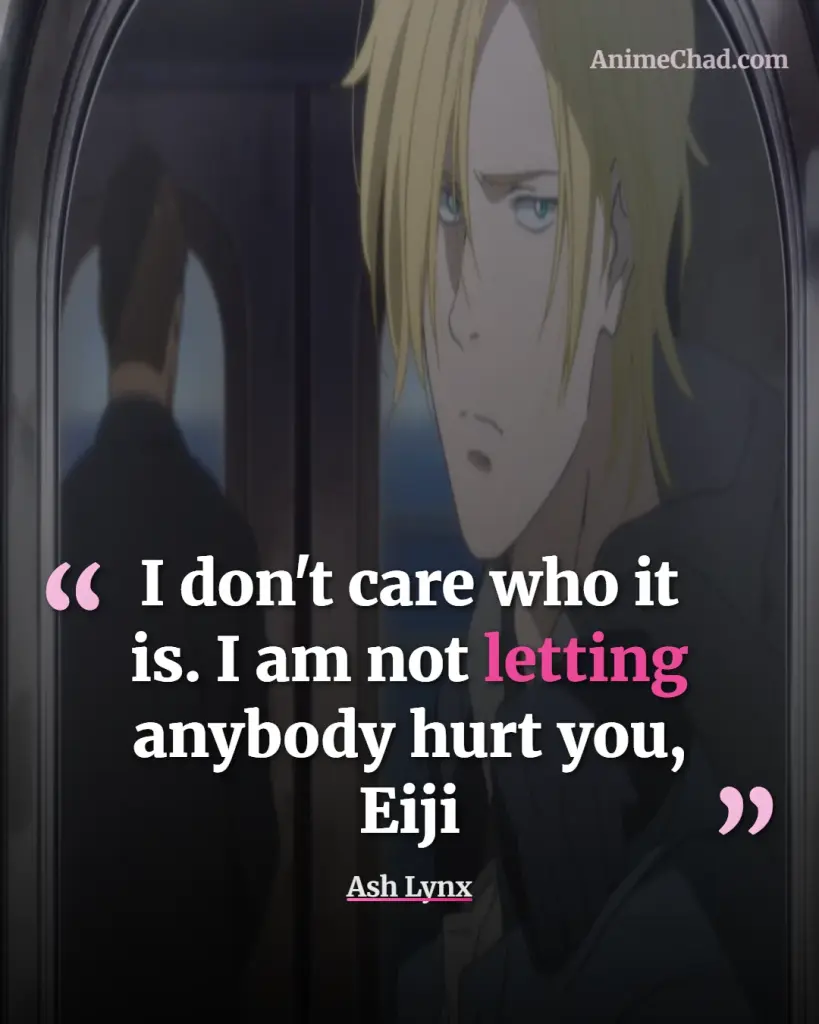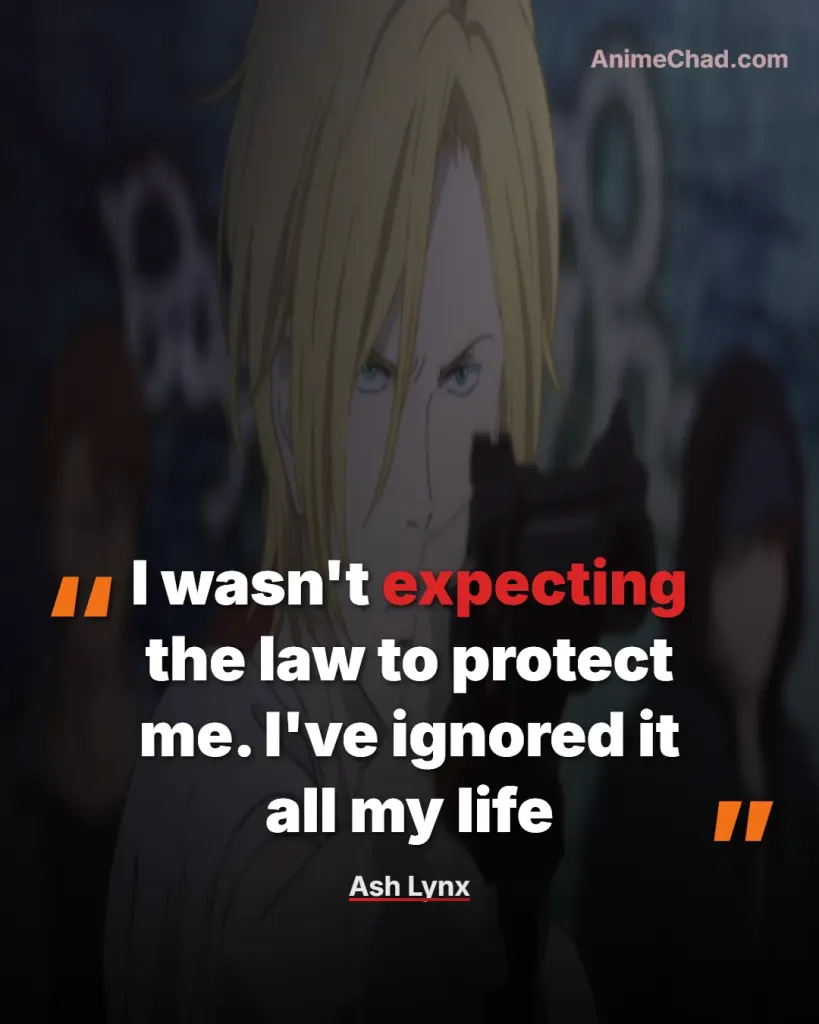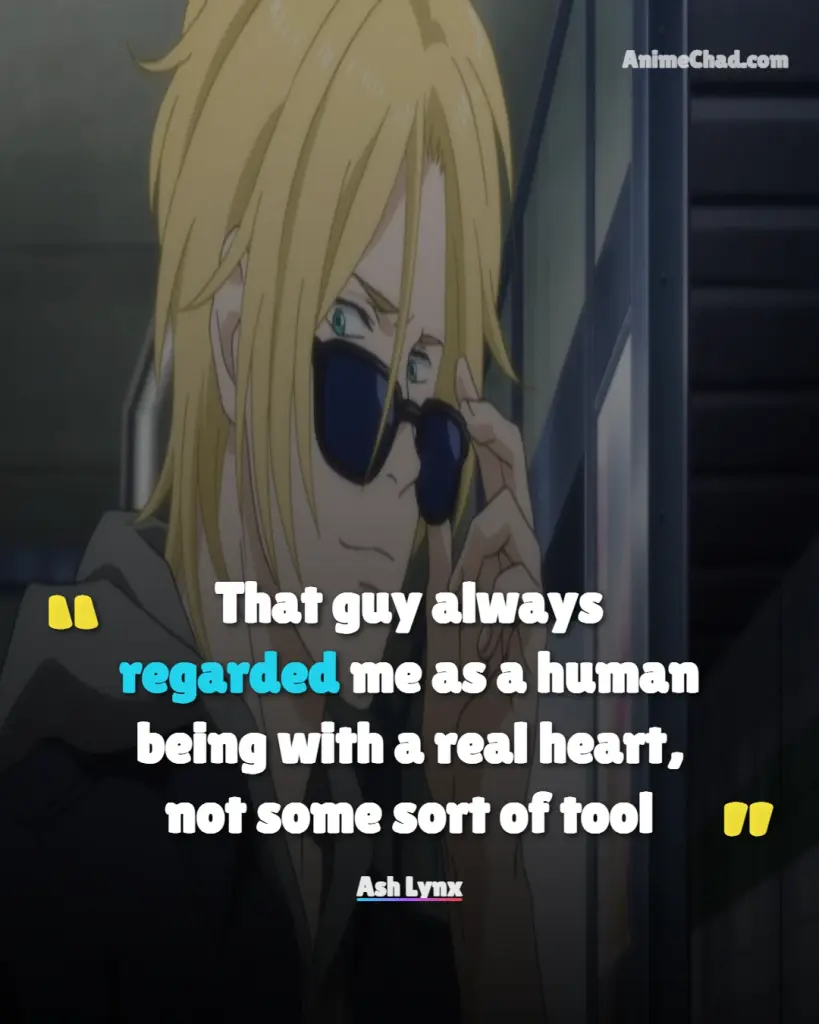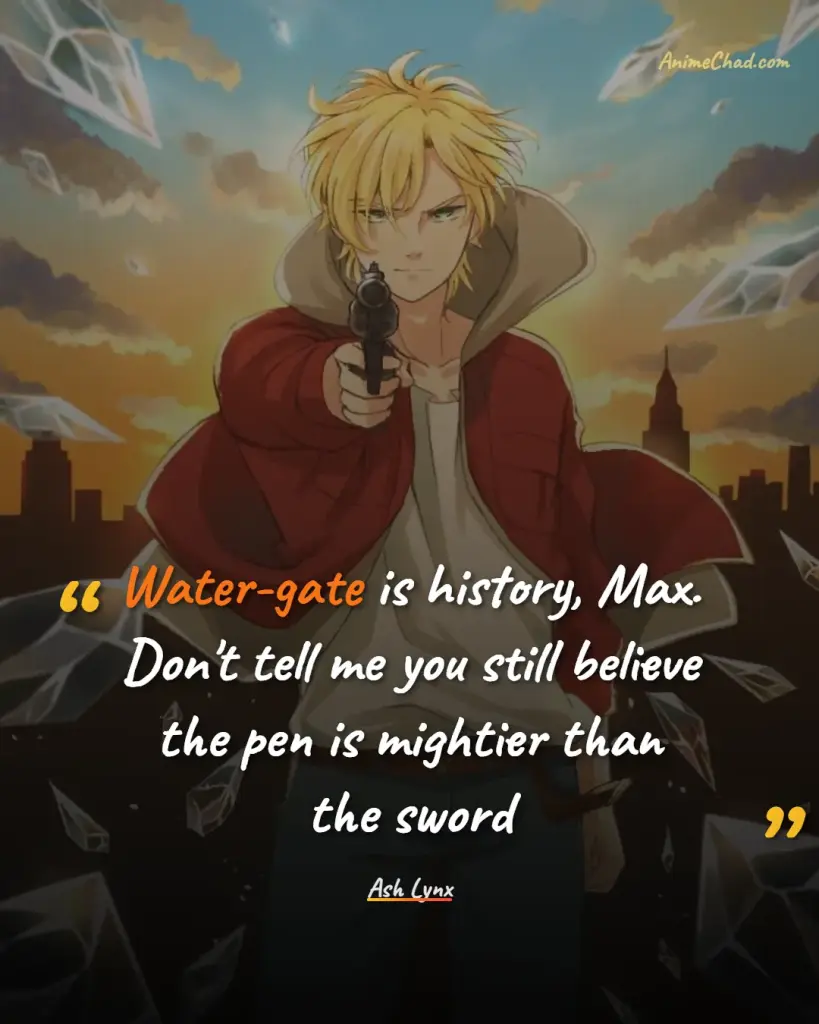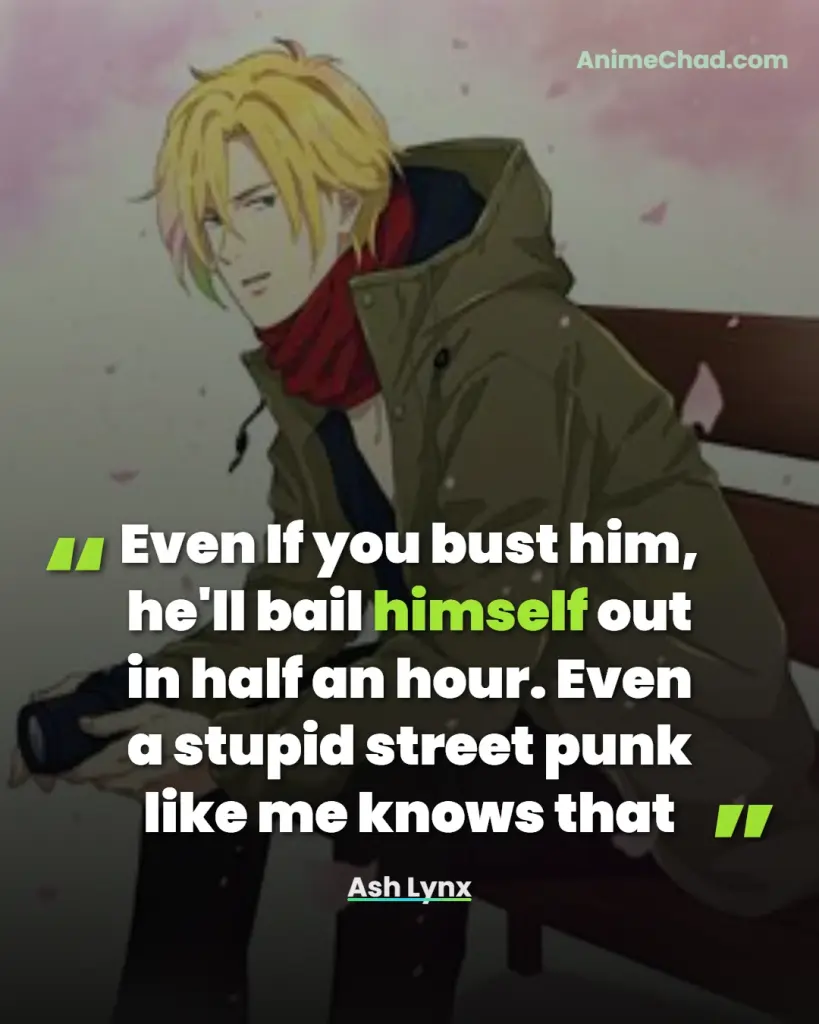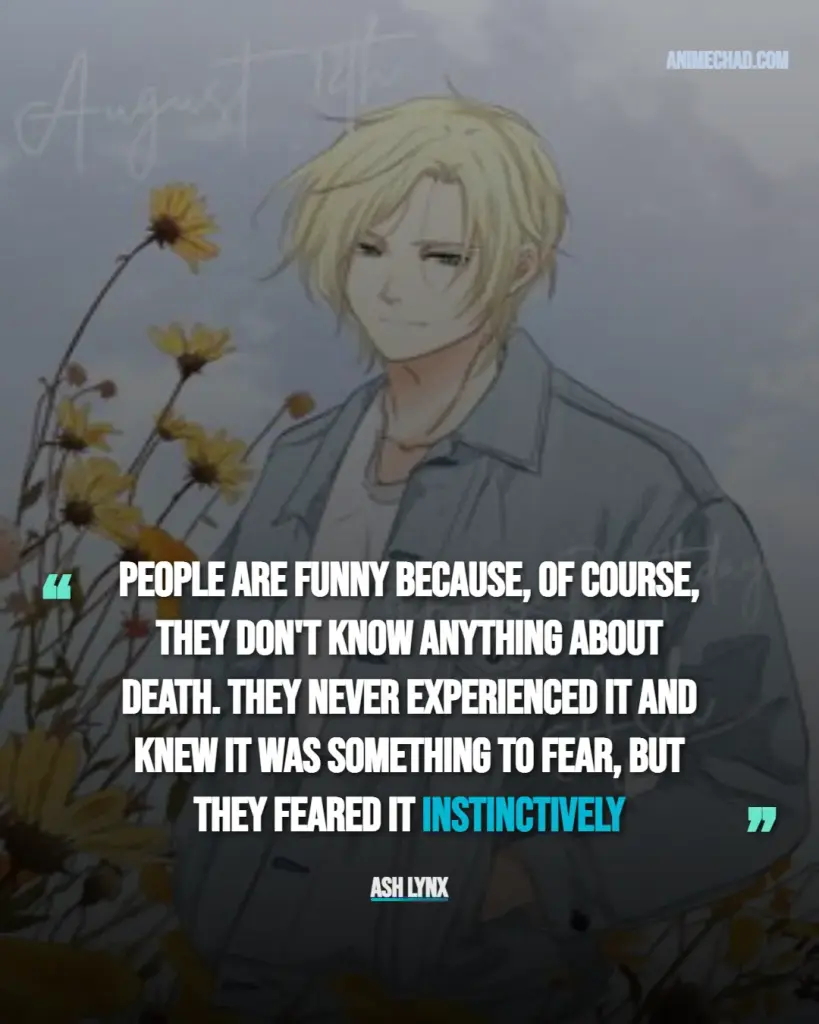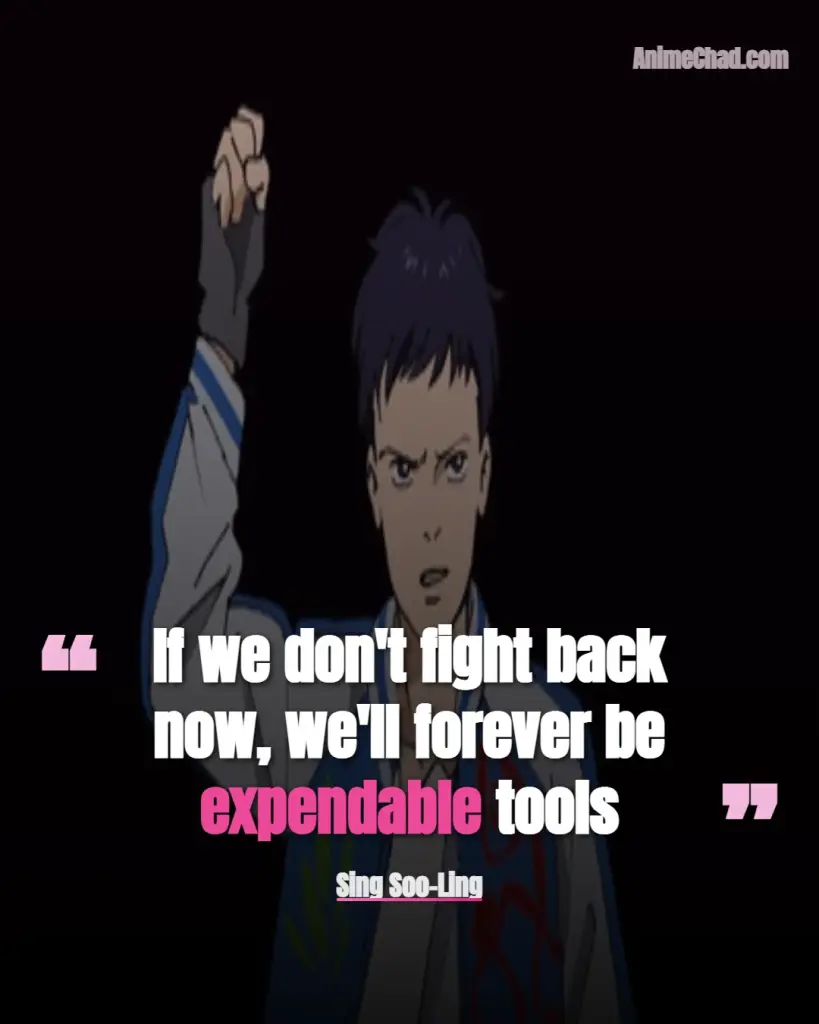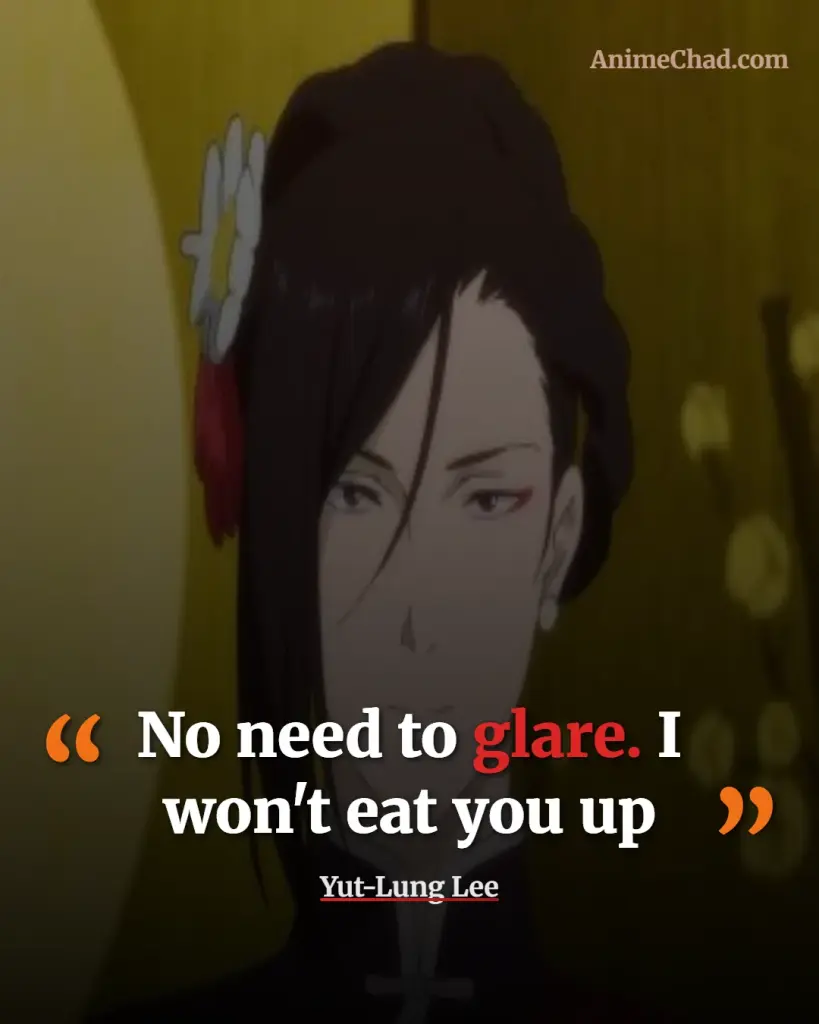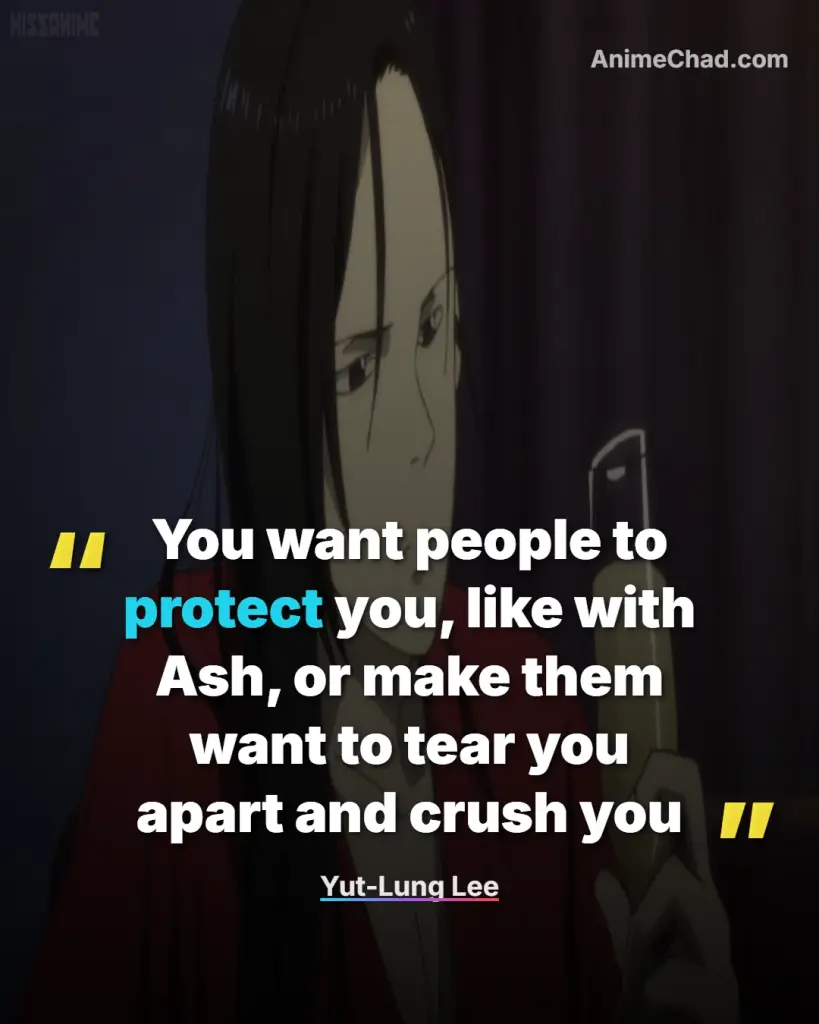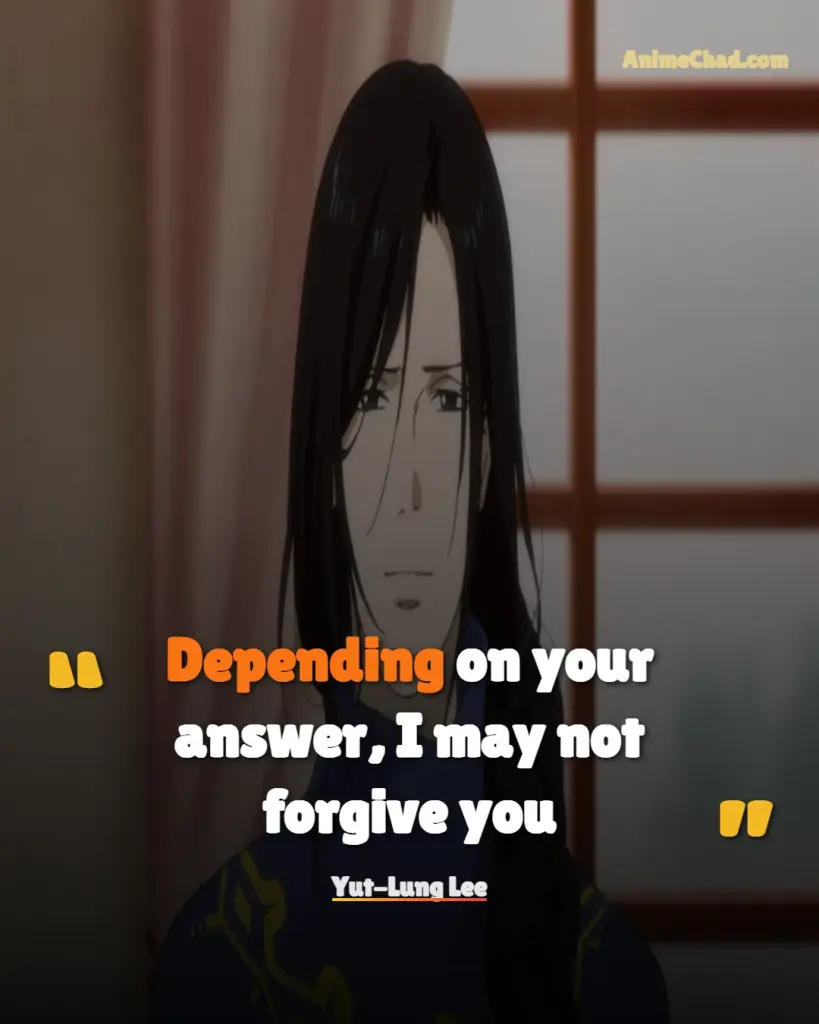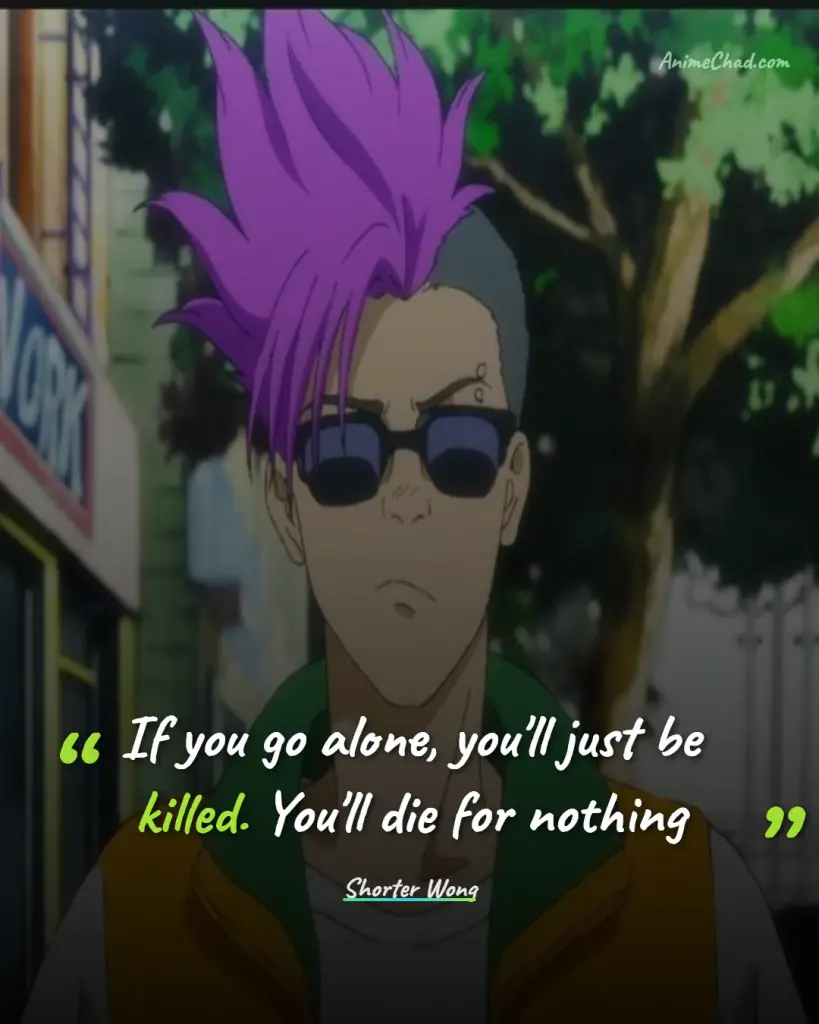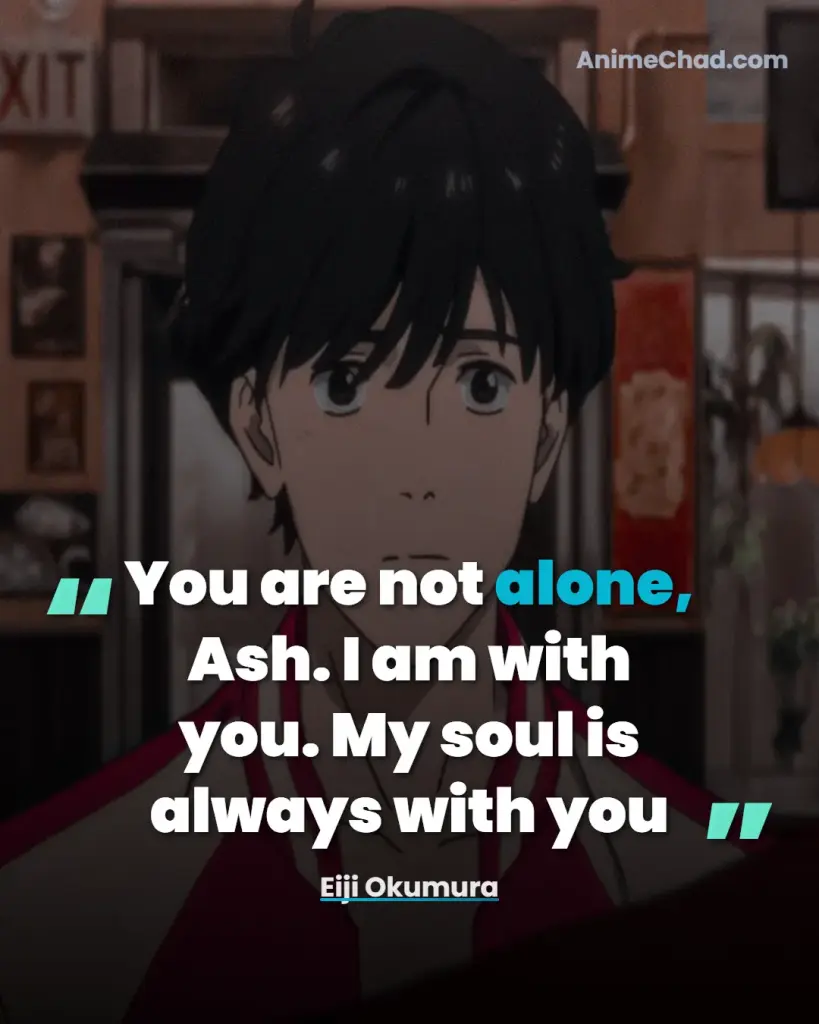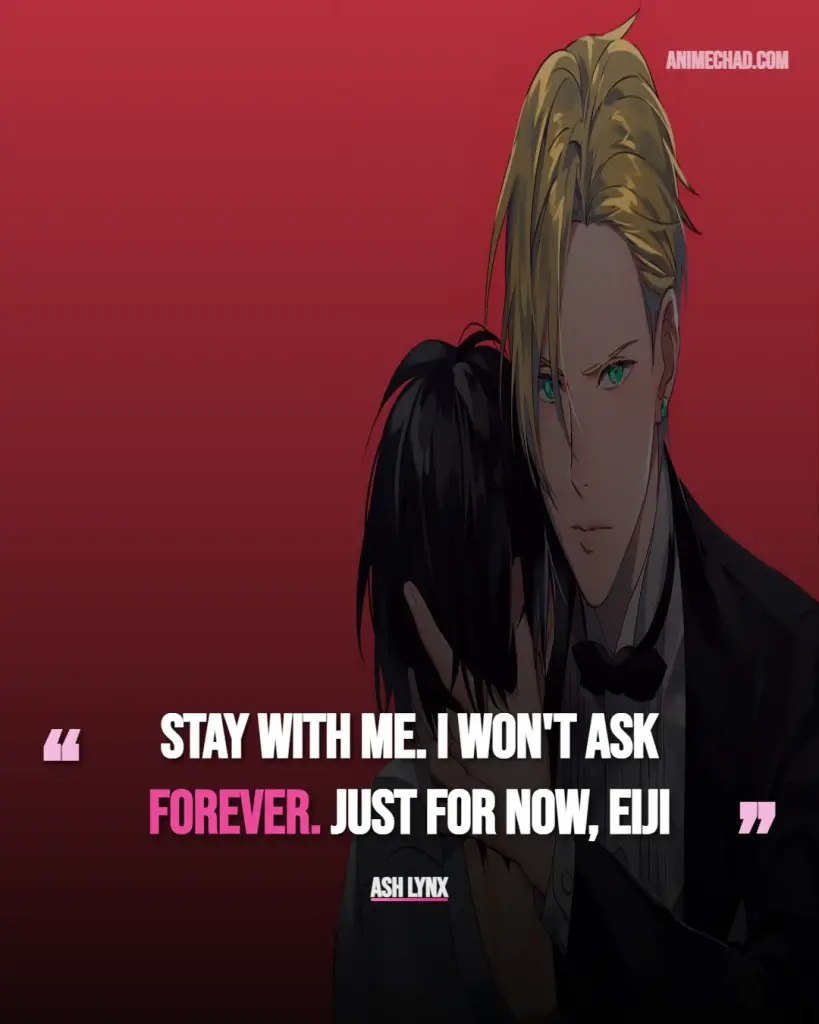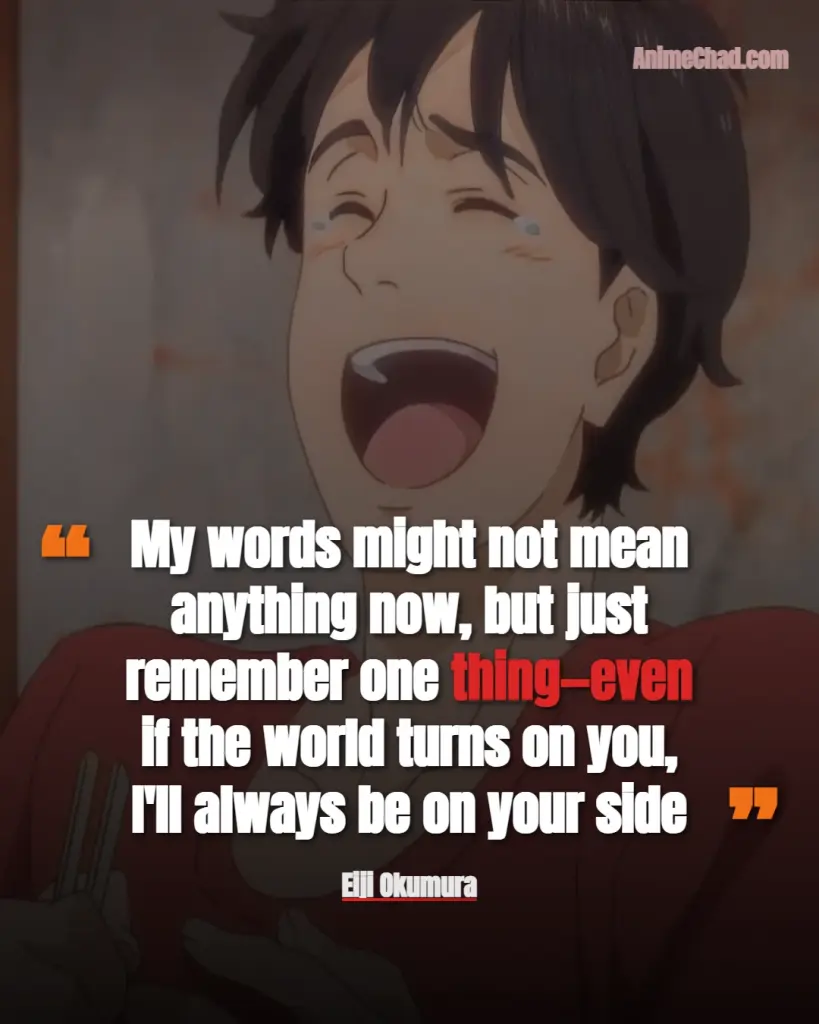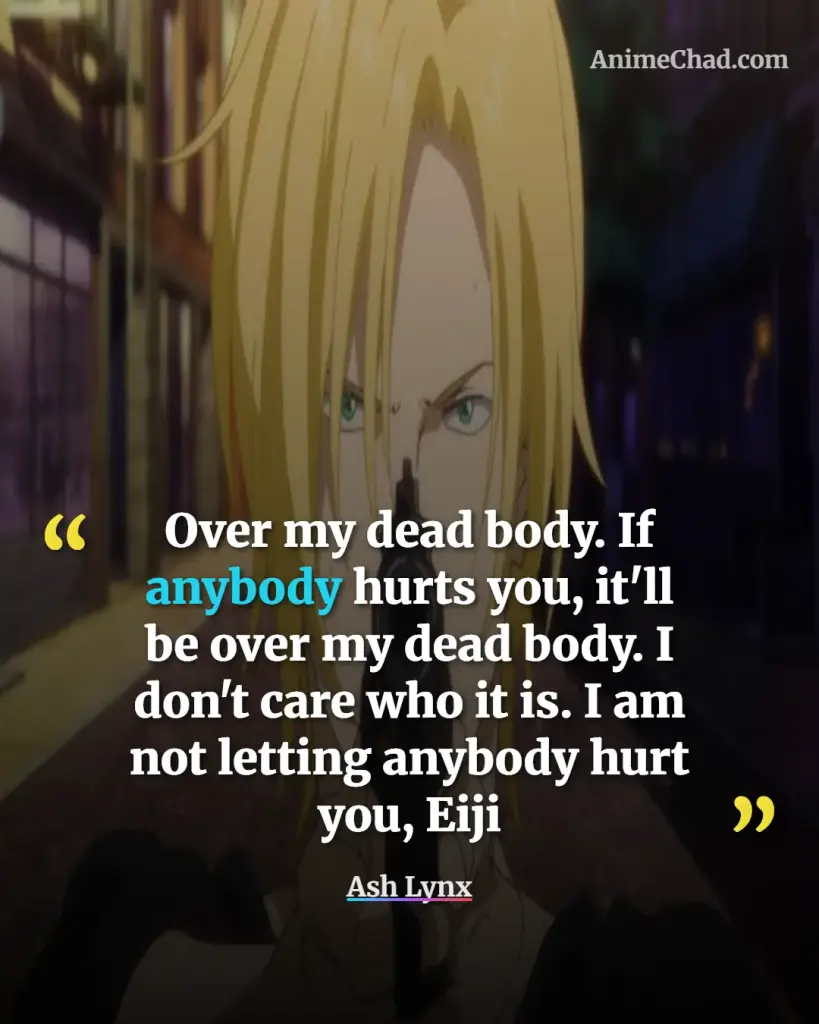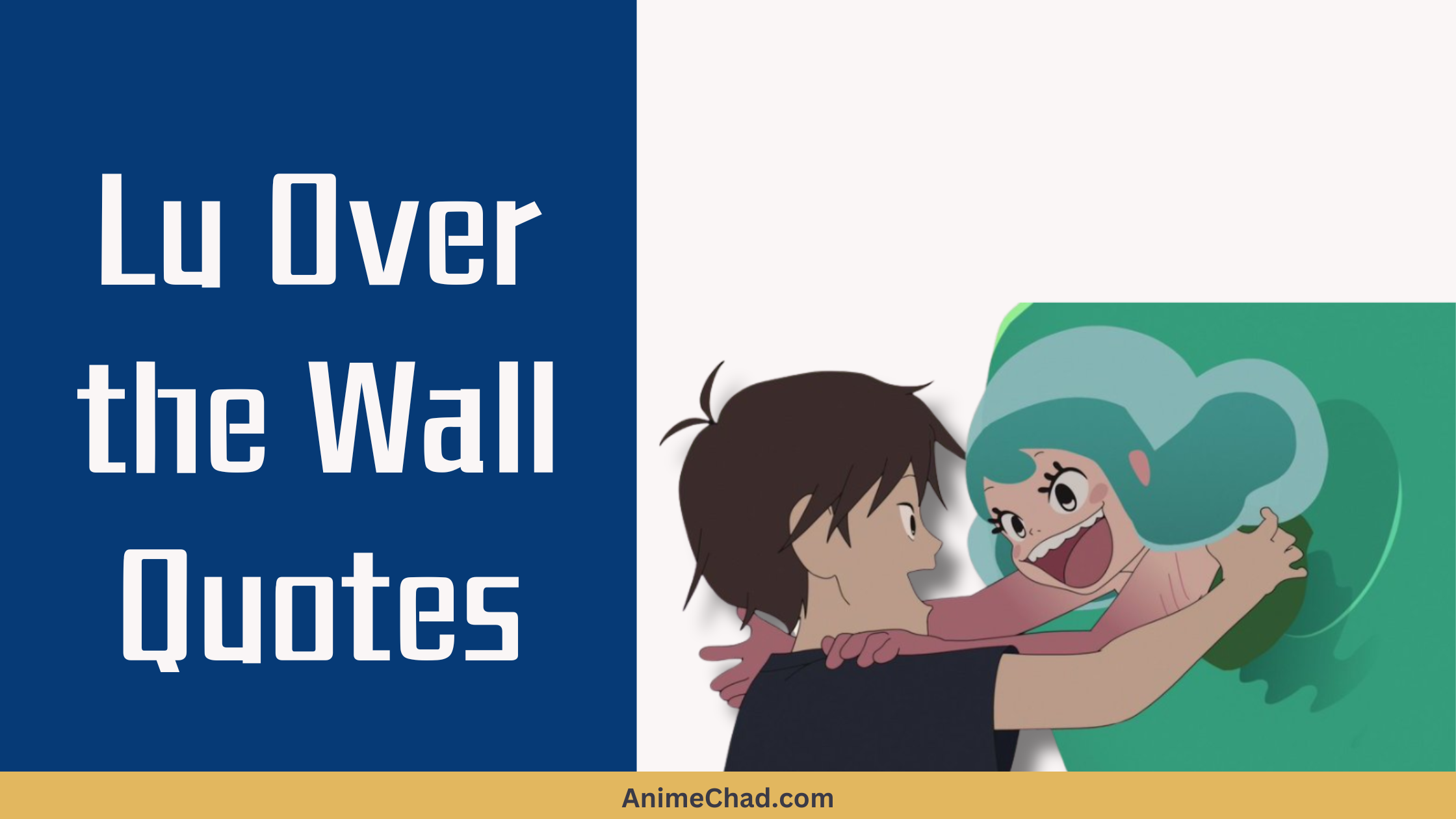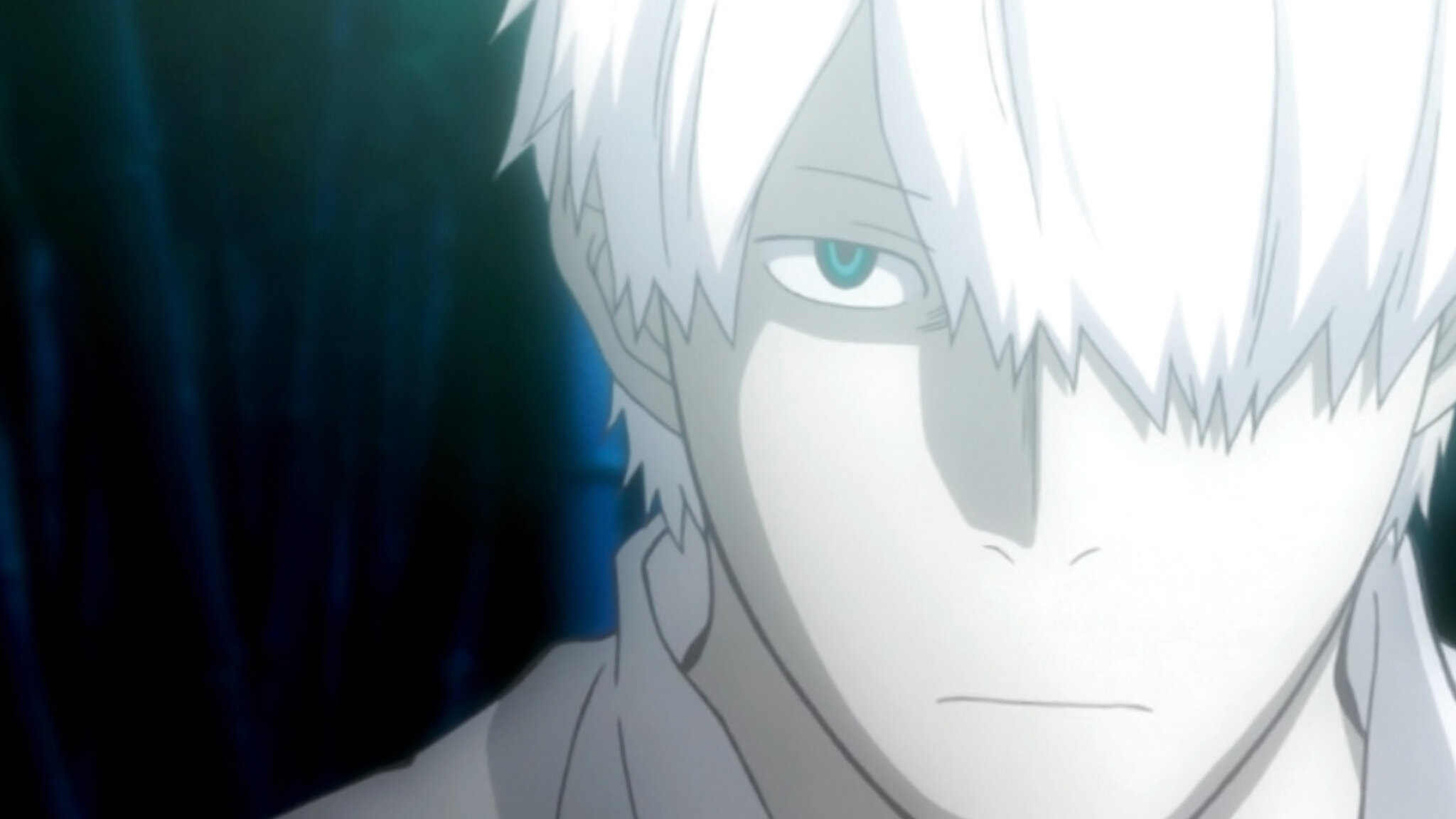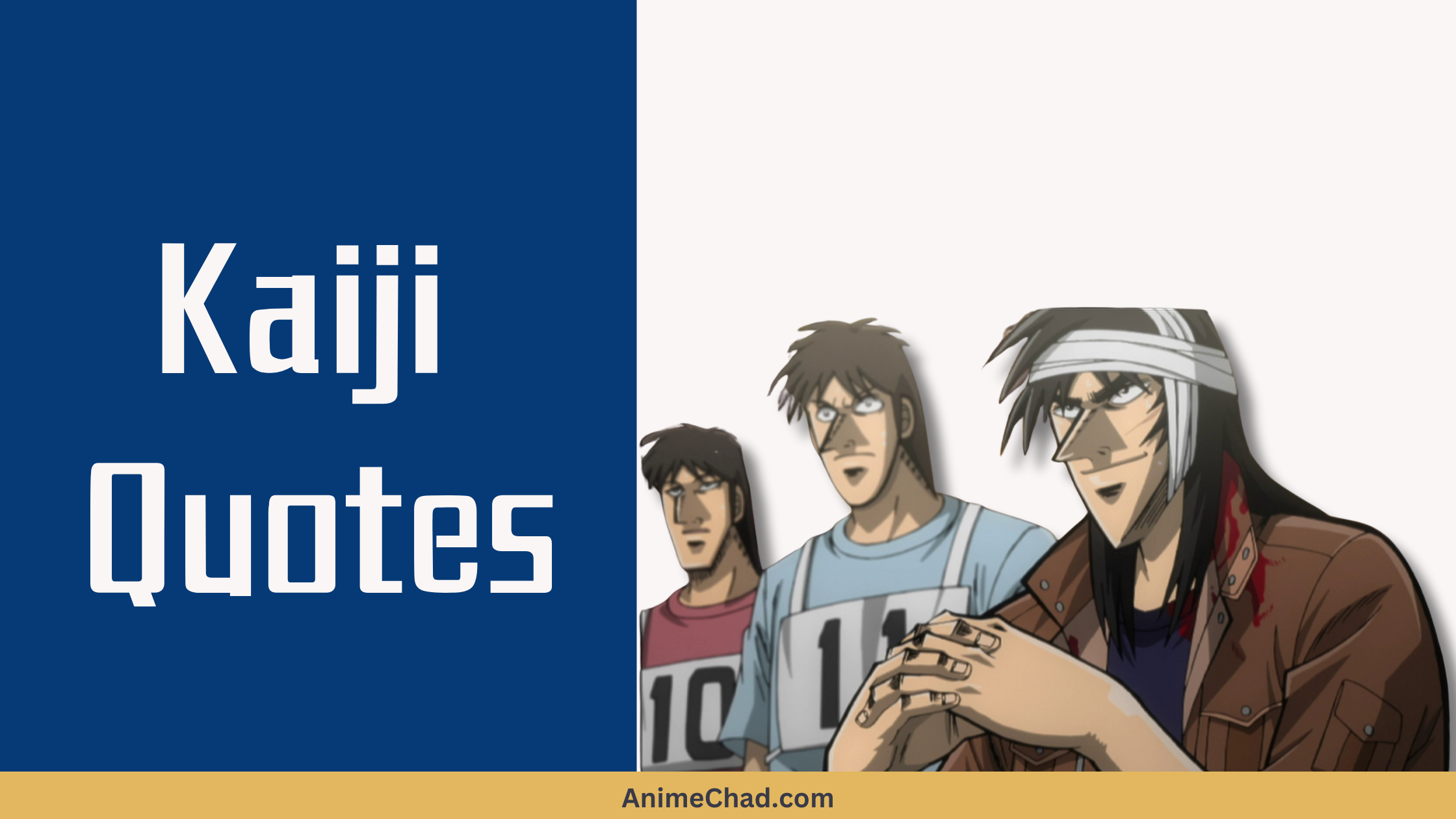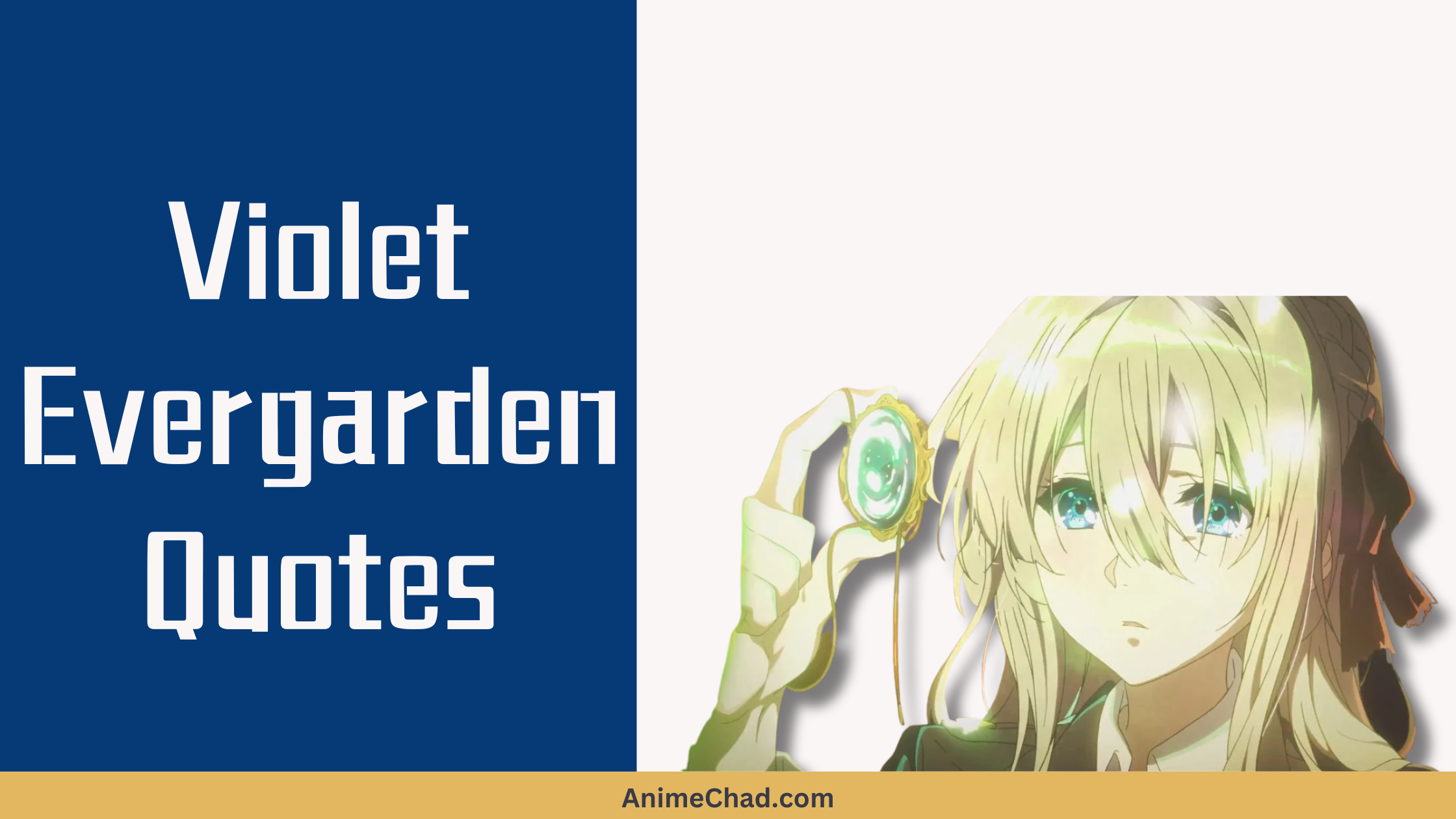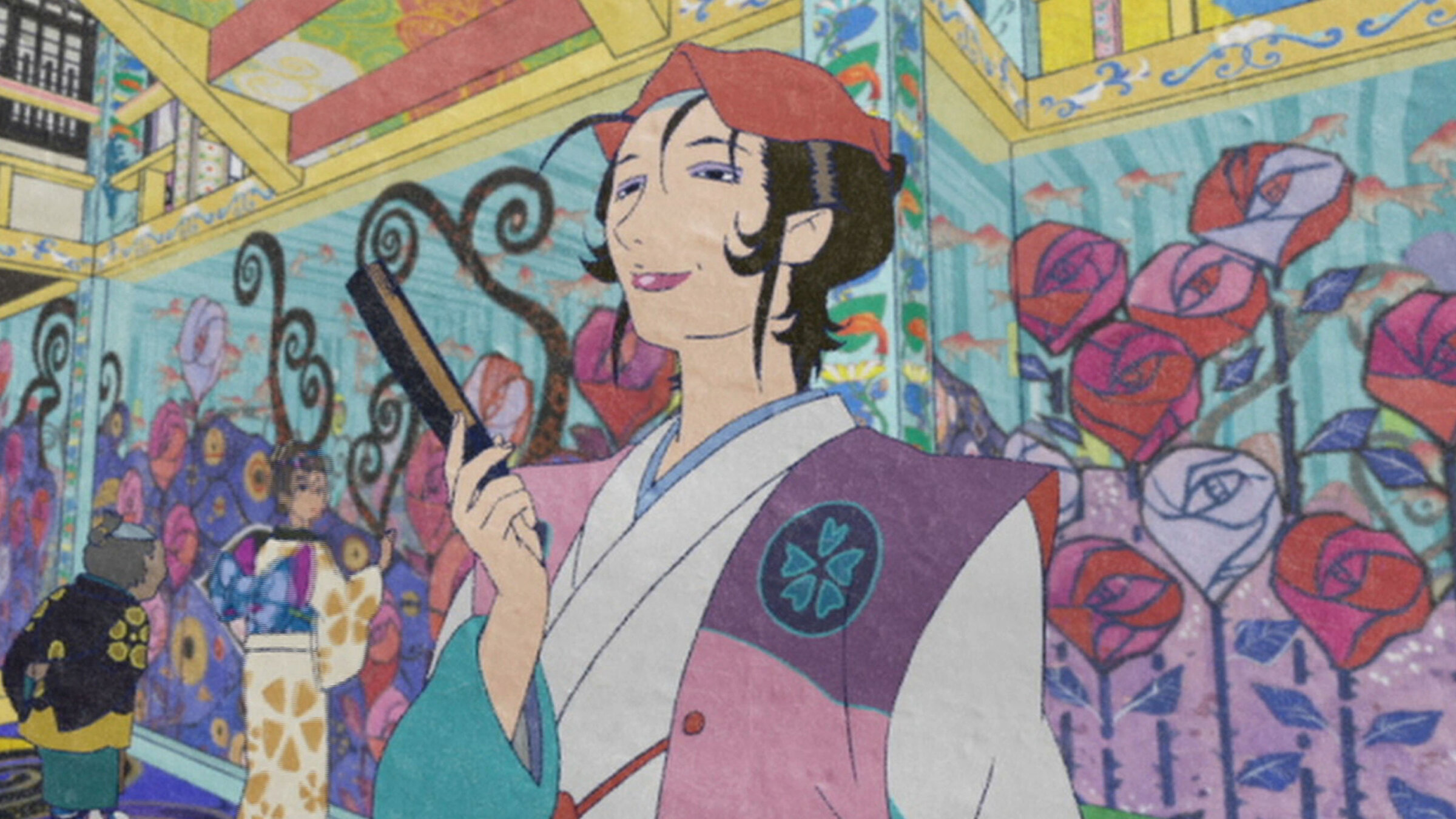Banana Fish follows Ash Lynx, a brilliant and tormented teenage gang leader in New York City, as he unravels a criminal conspiracy involving a mysterious drug that brainwashes its users. The series explores profound themes of trauma, abuse, unbreakable friendship, revenge, and the quest for humanity in a world of corruption and violence.
This curated collection of the best 25 quotes highlights emotional impacts, character development, and connections to these themes across various story arcs, blending intense battle moments with quieter reflections.
If I’m going to die anyway, at least I’ll die trying
Episode 10 (Babylon Revisited)
Eiji Okumura
Eiji’s defiant resolve in a high-stakes rescue underscores his growth from naive observer to courageous ally, tying into themes of friendship and self-sacrifice amid chaos.
Humans can change their destiny
Episode 6 (My Lost City)
Eiji Okumura
This optimistic declaration to Ash during a peaceful respite reveals Eiji’s nurturing influence, fostering Ash’s hope and highlighting redemption amid trauma.
If I ever lose you too, I’ll go crazy
Episode 19 (Ice Palace)
Eiji Okumura
Eiji’s vulnerable confession in a tense standoff emphasizes the deep emotional bond with Ash, driving themes of love and fear of loss in later arcs.
Come back safely. I’ll be waiting for you forever
Episode 24 (The Catcher in the Rye)
Eiji Okumura
Parting words in the series finale carry heartbreaking weight, symbolizing eternal loyalty and Eiji’s development into a pillar of unwavering support.
We are from different countries, and our skin and eyes are different colors. But so what
Episode 2 (In Another Country)
Eiji Okumura
Eiji’s early assertion bridges cultural divides, promoting themes of genuine connection and equality in a peaceful introductory moment.
I think I wanted to protect you from your future because your fate was sweeping you away like a flood
Episode 24 (The Catcher in the Rye)
Eiji Okumura
Reflective letter to Ash conveys protective love, illustrating Eiji’s maturation and the series’ exploration of fate versus free will.
War is always good business for those in power
Episode 12 (To Have and Have Not)
Ash Lynx
Ash’s cynical insight during a gang conflict exposes corruption, reflecting his hardened worldview and growth through survival instincts.
They paid the price for their decisions, that’s all
Episode 5 (From Death to Morning)
Ash Lynx
Spoken after a brutal betrayal, this justifies Ash’s ruthless actions, highlighting his emotional detachment and themes of consequence in early battles.
I wish I could hate you. I need someone to hate
Episode 18 (Islands in the Stream)
Ash Lynx
Ash’s conflicted admission to Eiji in a rare quiet moment reveals inner turmoil, advancing his character arc toward vulnerability and healing.
I wonder if I’m dying somewhere. I remember everything, but it’s peaceful
Episode 24 (The Catcher in the Rye)
Ash Lynx
Final musings evoke tragic serenity, underscoring Ash’s trauma resolution and the series’ poignant take on death and peace.
I don’t care who it is. I am not letting anybody hurt you, Eiji
Episode 9 (Save Me the Waltz)
Ash Lynx
Protective vow during an intense confrontation shows Ash’s fierce loyalty, deepening his bond with Eiji and themes of guardianship.
I wasn’t expecting the law to protect me. I’ve ignored it all my life
Episode 4 (This Side of Paradise)
Ash Lynx
Ash’s dismissal of authority in a strategic planning scene illustrates his rebellious development, connecting to broader corruption motifs.
That guy always regarded me as a human being with a real heart, not some sort of tool
Episode 19 (Ice Palace)
Ash Lynx
Reflection on Eiji during captivity highlights Ash’s rare trust, marking emotional growth and themes of dehumanization versus empathy.
Water-gate is history, Max. Don’t tell me you still believe the pen is mightier than the sword
Episode 13 (The Snows of Kilimanjaro)
Ash Lynx
Sarcastic jab in a heated debate critiques power structures, showing Ash’s intellect and cynicism evolved from his abusive past.
Even If you bust him, he’ll bail himself out in half an hour. Even a stupid street punk like me knows that
Episode 3 (Across the River and Into the Trees)
Ash Lynx
Early cynicism toward justice system reveals Ash’s street-smart maturity, tying into themes of systemic failure and survival.
People are funny because, of course, they don’t know anything about death. They never experienced it and knew it was something to fear, but they feared it instinctively
Episode 20 (The Beautiful and Damned)
Ash Lynx
Philosophical observation post-battle contemplates mortality, deepening Ash’s character through introspection on fear and human nature.
If we don’t fight back now, we’ll forever be expendable tools
Episode 15 (Garden of Eden)
Sing Soo-Ling
Rallying cry in a gang war emphasizes resistance, showcasing Sing’s leadership growth and themes of empowerment against exploitation.
No need to glare. I won’t eat you up
Episode 7 (The Rich Boy)
Yut-Lung Lee
Taunting remark in a tense encounter reveals Yut-Lung’s manipulative charm, connecting to rivalry and psychological warfare themes.
You want people to protect you, like with Ash, or make them want to tear you apart and crush you
Episode 16 (Loitering Again)
Yut-Lung Lee
Insight into human desires during a scheming moment highlights Yut-Lung’s complex psyche, advancing themes of envy and destruction.
Depending on your answer, I may not forgive you
Episode 17 (As I Lay Dying)
Yut-Lung Lee
Threatening line in a pivotal confrontation builds suspense, illustrating Yut-Lung’s vengeful evolution and emotional volatility.
If you go alone, you’ll just be killed. You’ll die for nothing
Episode 8 (Banal Story)
Shorter Wong
Desperate plea before a dangerous mission underscores loyalty, marking Shorter’s protective role and themes of sacrifice in friendships.
You are not alone, Ash. I am with you. My soul is always with you
Episode 24 (The Catcher in the Rye)
Eiji Okumura
Heartfelt assurance in farewell evokes profound emotional depth, symbolizing spiritual connection and Eiji’s supportive development.
Stay with me. I won’t ask forever. Just for now, Eiji
Episode 11 (Grateful When You’re Dead)
Ash Lynx
Vulnerable request in a peaceful interlude reveals Ash’s rare softness, advancing his arc toward seeking comfort amid turmoil.
My words might not mean anything now, but just remember one thing—even if the world turns on you, I’ll always be on your side
Episode 21 (The Undefeated)
Eiji Okumura
Encouraging promise during crisis strengthens bonds, highlighting Eiji’s growth into a beacon of hope against isolation themes.
Over my dead body. If anybody hurts you, it’ll be over my dead body. I don’t care who it is. I am not letting anybody hurt you, Eiji
Episode 14 (Tender is the Night)
Ash Lynx
Fierce declaration in battle vows protection, emphasizing Ash’s devotion and evolution from lone survivor to devoted guardian.
